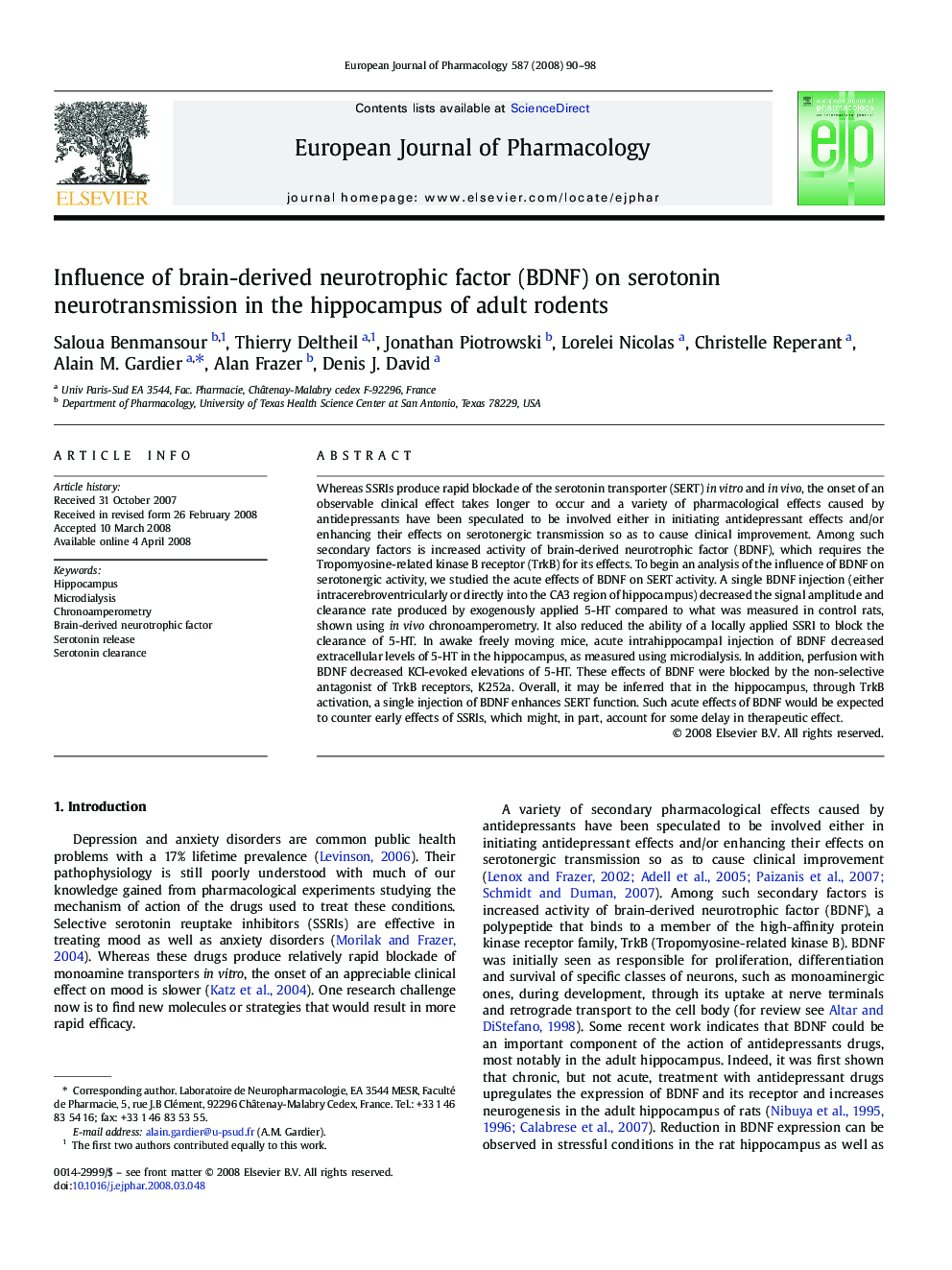| Article ID | Journal | Published Year | Pages | File Type |
|---|---|---|---|---|
| 2535327 | European Journal of Pharmacology | 2008 | 9 Pages |
Whereas SSRIs produce rapid blockade of the serotonin transporter (SERT) in vitro and in vivo, the onset of an observable clinical effect takes longer to occur and a variety of pharmacological effects caused by antidepressants have been speculated to be involved either in initiating antidepressant effects and/or enhancing their effects on serotonergic transmission so as to cause clinical improvement. Among such secondary factors is increased activity of brain-derived neurotrophic factor (BDNF), which requires the Tropomyosine-related kinase B receptor (TrkB) for its effects. To begin an analysis of the influence of BDNF on serotonergic activity, we studied the acute effects of BDNF on SERT activity. A single BDNF injection (either intracerebroventricularly or directly into the CA3 region of hippocampus) decreased the signal amplitude and clearance rate produced by exogenously applied 5-HT compared to what was measured in control rats, shown using in vivo chronoamperometry. It also reduced the ability of a locally applied SSRI to block the clearance of 5-HT. In awake freely moving mice, acute intrahippocampal injection of BDNF decreased extracellular levels of 5-HT in the hippocampus, as measured using microdialysis. In addition, perfusion with BDNF decreased KCl-evoked elevations of 5-HT. These effects of BDNF were blocked by the non-selective antagonist of TrkB receptors, K252a. Overall, it may be inferred that in the hippocampus, through TrkB activation, a single injection of BDNF enhances SERT function. Such acute effects of BDNF would be expected to counter early effects of SSRIs, which might, in part, account for some delay in therapeutic effect.
